20 Superfoods for People Over 50

Your health and nutrition needs start to change once you reach 50. "A good diet can help get blood pressure under better control, decrease the risk of heart problems, and contribute to the prevention of things like diabetes and cancer," Marie Bernard, MD, chief officer for scientific workforce diversity at the National Institutes of Health (NIH), tells AARP. Here are 20 superfoods people over 50 should include in their diet.
Green Vegetables
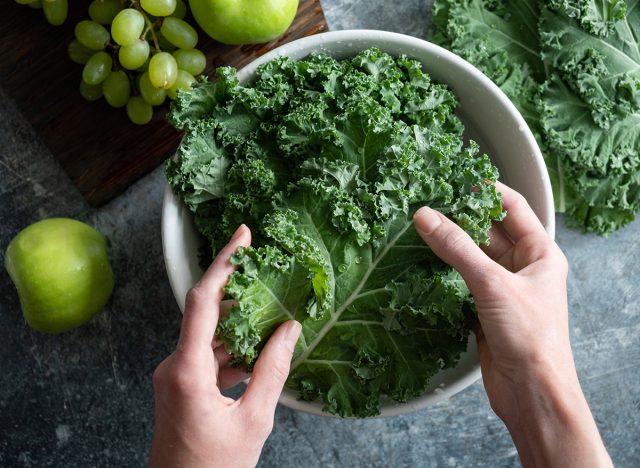
Take care of bone health after 50 by eating lots of leafy green vegetables and dairy products. "As we get older, our bones become softer and need calcium," Bernard says. "That's something you can get from low-fat dairy and dark-green leafy vegetables."
Berries
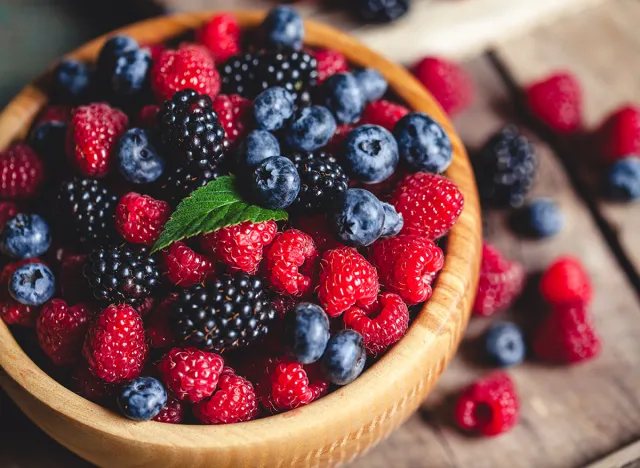
Berries are one of the ultimate superfoods—especially wild blueberries. "They have three or four times the antioxidants of conventional blueberries," Alicia Arbaje, MD, tells AARP. "Add them to your oatmeal or smoothies."
Oily Fish
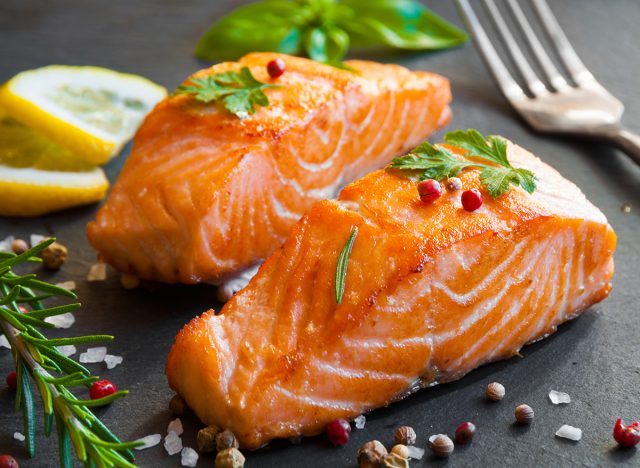
Enjoy oily fish like salmon and mackerel. "Try to eat at least two servings a week of fish, especially fish that's rich in omega-3 fatty acids," says the Mayo Clinic. "Doing so appears to reduce the risk of heart disease, particularly sudden cardiac death."
RELATED: I Lost 95 Pounds in 18 Months With These Basic Changes
Nuts and Seeds
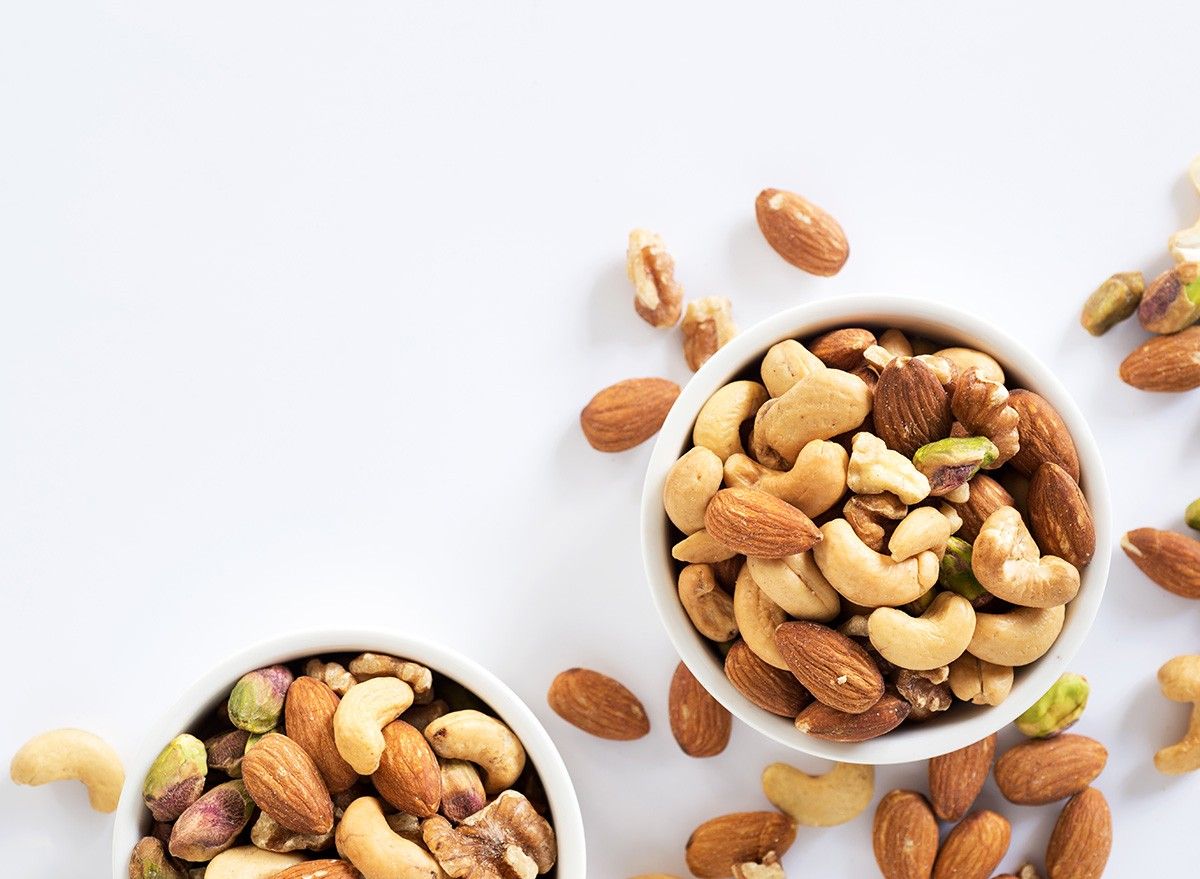
Nuts and seeds are satiating and contain healthy fats. "They have protein and fiber, and they can make you feel full, " registered dietitian and nutritionist Christine Rosenbloom tells AARP. "Eat just a handful as an afternoon snack, and you won't be starving at dinnertime."
RELATED: 20 Superfoods for People Over 50
Cottage Cheese
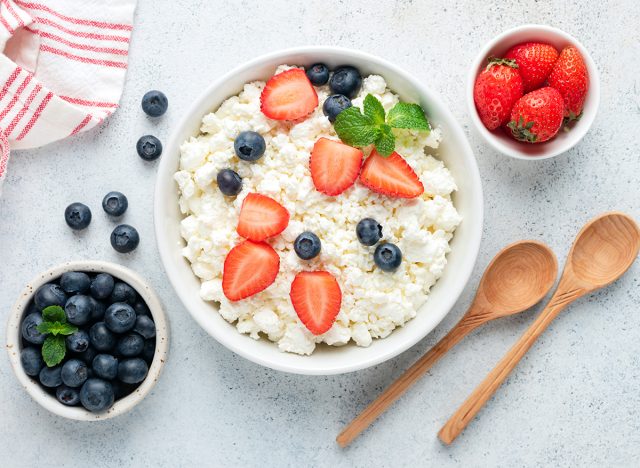
Enjoy cottage cheese as a snack or part of a meal. "Cottage cheese is a great source of whey protein, which helps stimulate muscle protein synthesis," says Rosenbloom. "Athletes know this — after a workout, they often have a shake based on whey protein. But instead of doing that, eat cottage cheese… Our bones are like a bank, and after age 35, we start to lose bone density."
Citrus Fruits
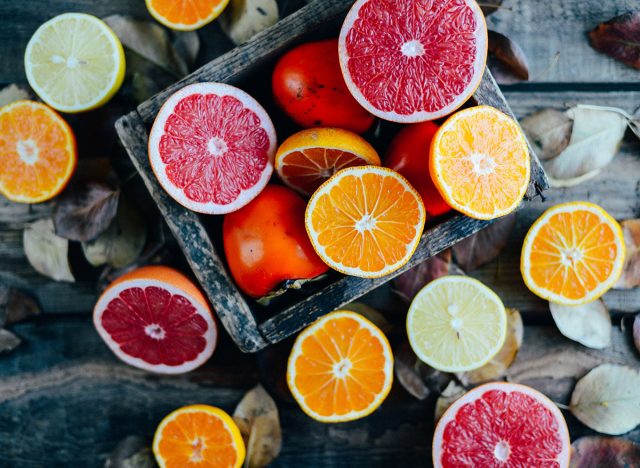
Citrus fruits are a good source of calcium. "One easy way to get calcium in your diet is to squeeze half a lemon, lime or orange into your water," says Arbaje. "You'll also get electrolytes, sodium, potassium, calcium and magnesium, all minerals that your body needs."
Cruciferous Vegetables
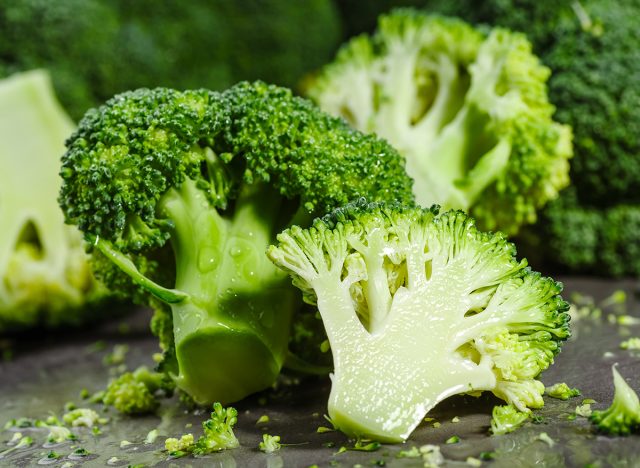
"This veggie family includes broccoli, cabbage, Brussels sprouts, and turnips—all of which are great sources of fiber, vitamins, and cancer-preventing phytochemicals," says the National Council on Aging. "Cruciferous vegetables are tasty and extremely versatile."
Delicious Eggs
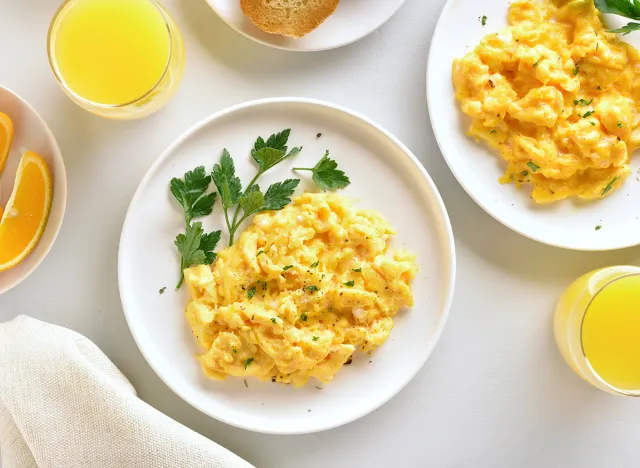
Don't be afraid of eggs! "Eggs have been a source of dietary controversy over the years due to cholesterol found in the yolk," says the National Council on Aging. "However, skipping the yolk could deprive older adults of key nutrients such as vitamin B12, vitamin D, and selenium. Egg yolks also contain choline, a nutrient and neurotransmitter responsible for regulating mood and memory."
Beans
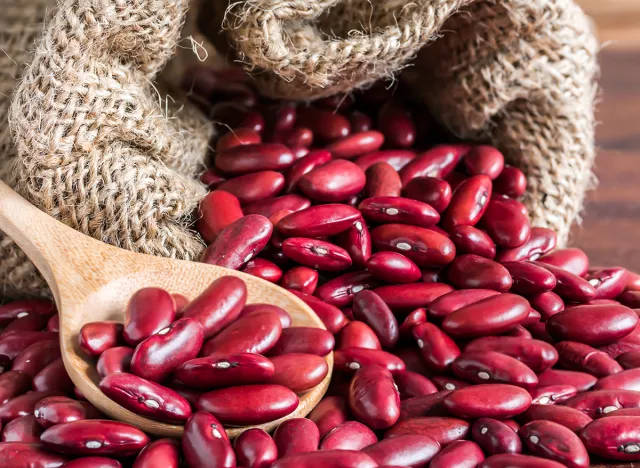
Rinse canned beans to get rid of the extra sodium. "Whether canned or dried, beans are a great food to incorporate in the diet for people 50 and over," registered dietitian Tara Tomaino tells HuffPost. "Beans are a great source of fiber as well as plant-based protein. Fiber is a key nutrient for heart health, blood-sugar management and weight control."
Olive Oil
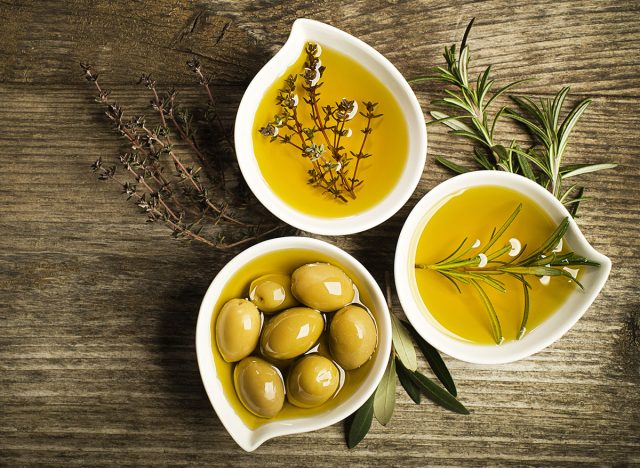
Olive oil is full of healthy fats and a staple of the heart-healthy Mediterranean diet. "Olive oil is a good source of vitamin E, polyphenols, and monounsaturated fatty acids, all of which help reduce the risk of heart disease," Mallika Marshall, MD, tells Harvard Health.
Greek Yogurt
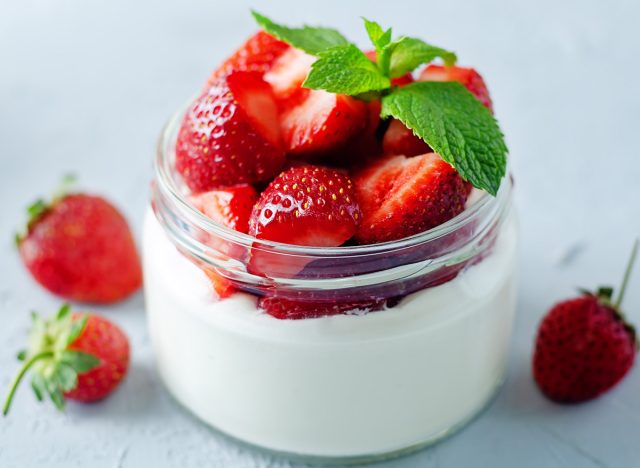
Greek yogurt is a great source of protein and probiotics. "When it comes to protein, Greek yogurt delivers," says the National Council on Aging. "Just one cup has 17 grams of protein as well as 20% of the daily recommended intake of calcium. Why else is Greek yogurt considered one of the best superfoods for seniors? It contains probiotics, which help us maintain gut health. Probiotics have been shown to aid in digestion, boost immune function, and even prevent infection."
Citrus Fruits
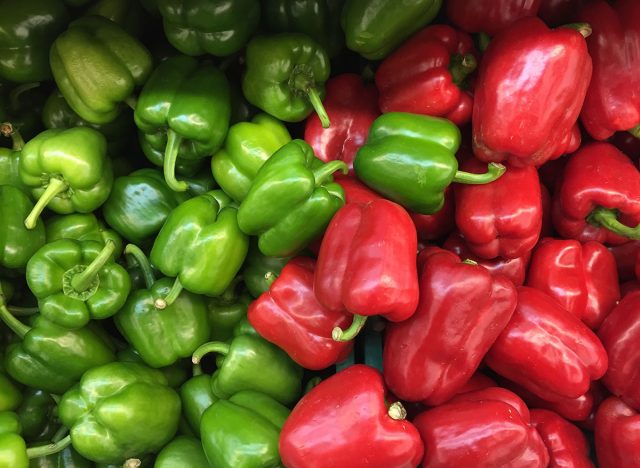
Load up on delicious citrus fruits. "Foods and drinks rich in vitamin C will help the body absorb iron, so you could have some fruit or vegetables or a glass of fruit juice with an iron-rich meal," says Nidirect. "Fruit, especially citrus fruit, green vegetables, peppers, tomatoes and potatoes are all good sources of vitamin C."
Water
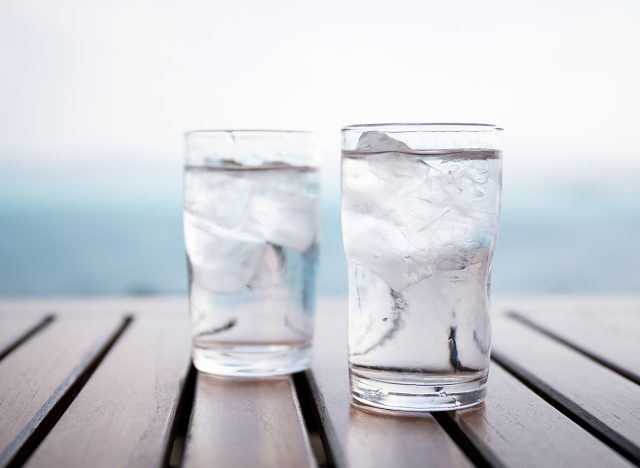
Don't forget about water! "Your body needs plenty of fluid to work properly, such as helping to stop you getting constipated or confused," says Nidirect. "Aim to drink about six to eight glasses of water, or other fluids, every day to stop you getting dehydrated."
RELATED: 10 Things You Need to Change to Live Longer, According to Dave Asprey
Avocados
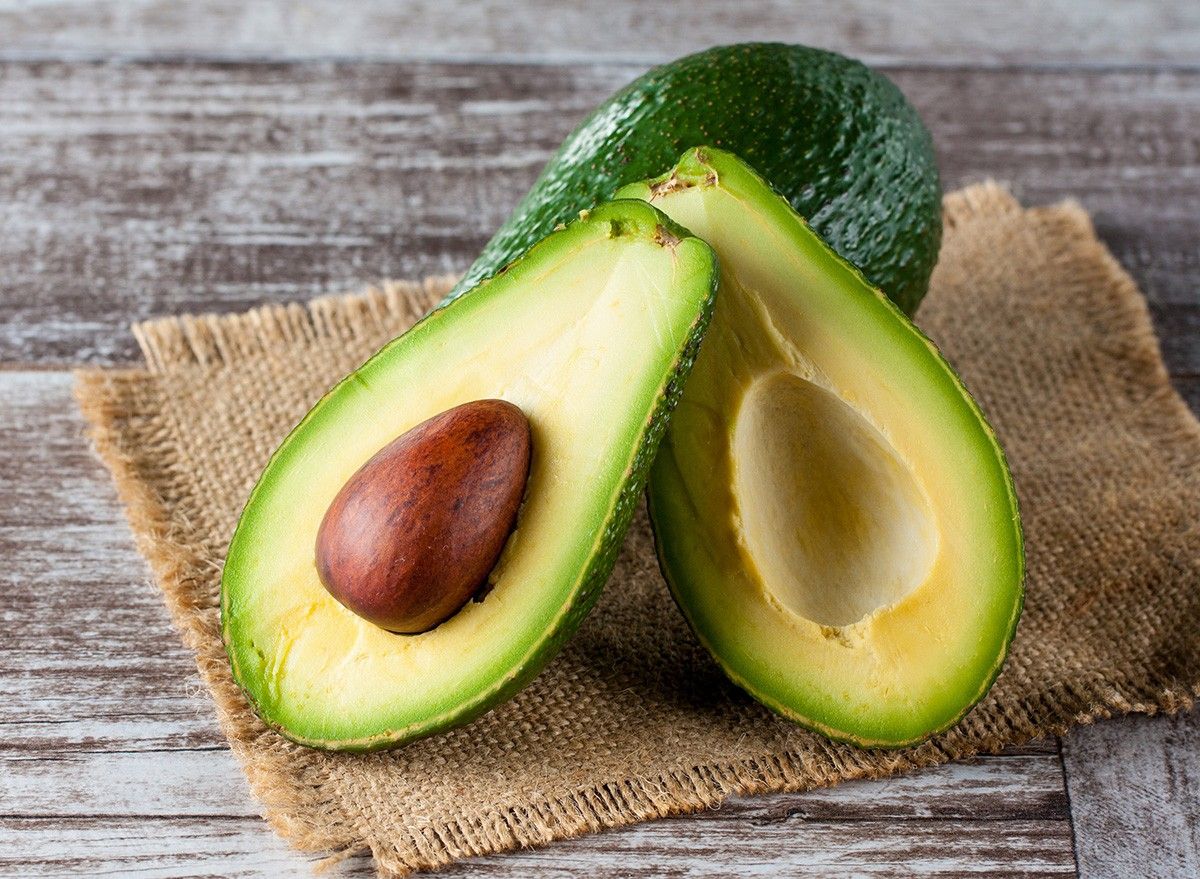
Avocados are nutritious and versatile. "Avocado is a nutritional powerhouse, loaded with nourishing fats, antioxidants, and other nutrients that support head-to-toe health," says the National Council on Aging. "This creamy-textured fruit is delicious in guacamole or spread on toast. If the older adult you care for doesn't like the taste of avocado, consider blending it into a fruit smoothie for a subtle nutritional boost."
Whole Grains
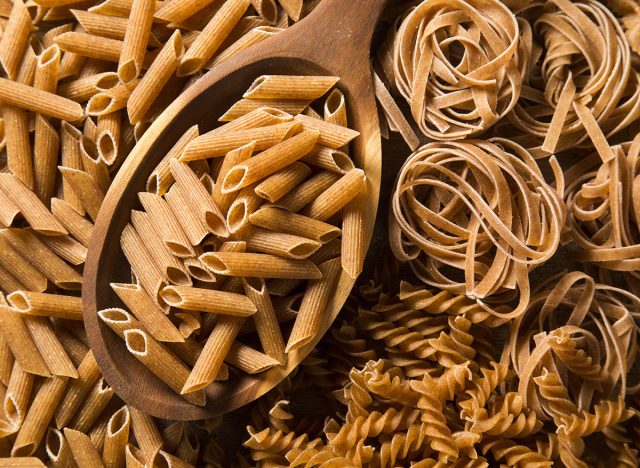
Whole grains are full of good nutrition and are linked to many health benefits. "A good source of soluble and insoluble fiber, whole grains also contain several B vitamins and minerals," Marshall tells Harvard Health. "They have been shown to lower cholesterol and protect against heart disease and diabetes."
RELATED: I'm a Doctor, and These Are 5 Things I Will Never Do to Lose Weight
Be Mindful of Alcohol

Be mindful of alcohol after 50. "Although many people enjoy alcohol socially, alcohol in large quantities can be a significant source of calories, which may result in weight gain," says Nidirect. "Alcohol can also impair judgment, which can increase the risk of falls. As you get older, you tend to have less body weight than younger adults, so the alcohol is more concentrated in the blood."
Don't Force Your Food
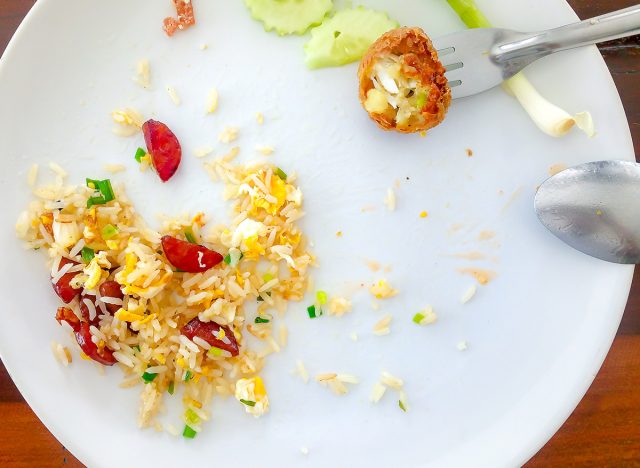
Don't feel pressured to finish everything on your plate. "As you get older it's natural to start eating less because you will become less physically active and so your body will adapt and adjust your overall food intake," says Nidirect. "You may find it difficult to tolerate the meals you used to eat. Try having smaller meals more often and with nutritious snacks in between."
Eat Whole Foods
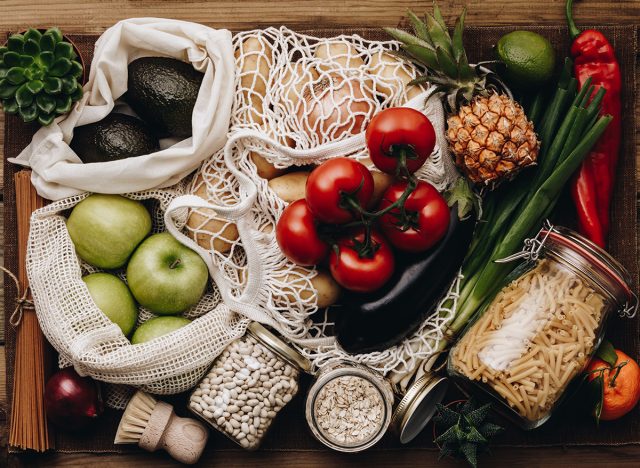
A diet rich in whole foods will make you look and feel so much better than packaged foods. "Packaged, processed foods tend to make you feel sluggish and heavy," says Johns Hopkins geriatrician Alicia Arbaje, MD, MPH.
Limit Processed Foods
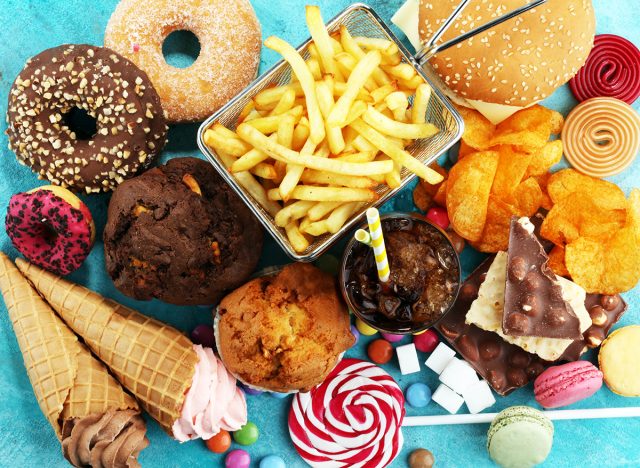
Ultra-processed foods are terrible for your health at any age. "A diet high in ultra-processed foods causes weight gain and unhealthy shifts in blood sugar and cholesterol," Marshall tells Harvard Health. "Food processing often strips away nutrients while adding extra fats, sugars, sodium, additives, and preservatives."
RELATED: 10 Foods to Avoid That Cause Inflammation
Supplements
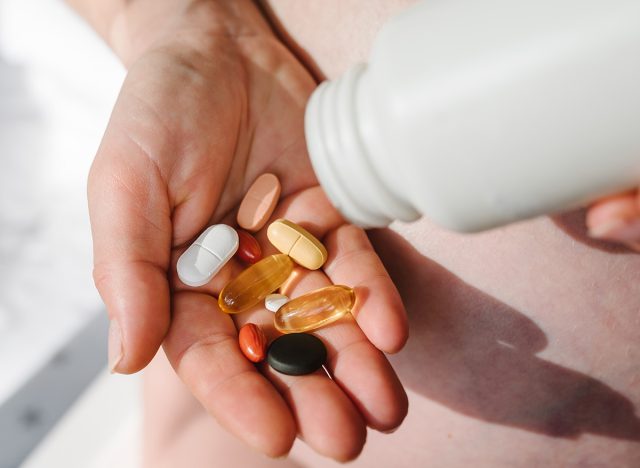
Supplements may be useful for some people. "For example, strict vegans may not get enough vitamin B-12, which is found primarily in animal products," Marshall tells Harvard Health. "Low levels of vitamins B-12 and B-6 can stem from digestive disorders, such as Crohn's disease, celiac disease, and ulcerative colitis, conditions that make it difficult to absorb nutrients." And if you enjoyed this article, take advantage of these 15 Quick Ways to Lose Body Fat Percentage in a Week.




